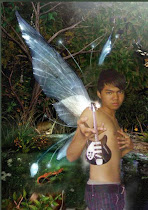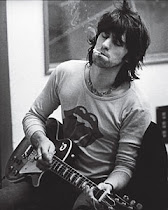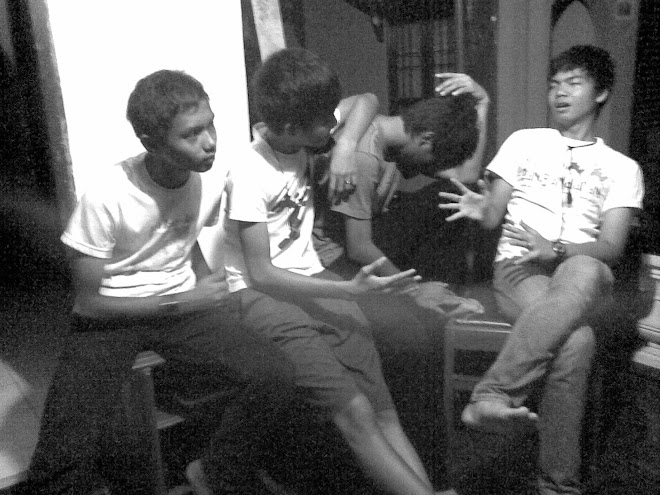Mick Jagger, Rock Musician
|
- Born: 26 July 1943
- Birthplace: Dartford, Kent, England
- Best Known As: Lead singer for The Rolling Stones
Michael Philip Jagger dropped out of the London School of Economics to be a rock star. His group The Rolling Stones began recording in 1963, and by 1965 they had an international hit with "(I Can't Get No) Satisfaction." Jagger and guitarist Keith Richards wrote most of the songs for The Stones, and Jagger's strutting, pouting delivery made him the archetype of the charismatic rock front man. The group's three-decade string of hits includes "Brown Sugar," "Miss You" and "Start Me Up." Jagger has always been considered one of rock's best businessmen, and The Rolling Stones rank with The Beatles among the most successful acts in history. The group has continued to tour into their sixties, and in 2006 the Stones played the halftime show at Super Bowl XL.
Jagger was married to model Jerry Hall from 1991-99; they split after Jagger admitted he had fathered a child with Brazilian model Luciana Morad... Jagger's first wife, Bianca Jagger, was a jet-set celebrity in the 1970s; the two were married 1971-80... Jagger also has appeared in several movies, including Performance (1970) and Freejack (1992, with Hall and Anthony Hopkins).
| Artist: Mick Jagger |

Similar Artists:
Followers:
Performed Songs By:
Worked With:
Formal Connection With:
Relationship With:
- Born: July 26, 1943, Dartford, Kent, England
- Active: '60s, '70s, '80s, '90s, 2000s
- Genres: Rock
- Instrument: Vocals, Harmonica, Keyboards
- Representative Albums: "Wandering Spirit," "The Very Best of Mick Jagger," "She's the Boss"
- Representative Songs: "Memo from Turner," "Don't Tear Me Up," "Sweet Thing"
Biography
As the lead singer for the Rolling Stones, Mick Jagger is one of the most popular and influential frontmen in the history of rock & roll. Jagger fronted the Rolling Stones for over 20 years before he began a solo career in 1985. At the time of the release of his debut solo album, She's the Boss, it appeared that the Stones may have been approaching the end of their career, but it soon transpired that Jagger's solo career would run concurrently with that of the band's. Over the next decade, he released a string of solo albums, none of which achieved the commercial success of the Stones' less popular releases.Born Michael Phillip Jagger on July 26, 1943, in Dartford, England, he initially met future musical collaborator and Rolling Stones guitarist Keith Richards while the pair were five years old at primary school, although they would lose contact with each other shortly thereafter. In the intervening years, Jagger discovered a love for music, especially early rock & roll (forming a high school band, Little Boy Blue & the Blue Boys), as well as developing an interest in business, attending the London School of Economics.
In his late teens, Jagger happened to bump into Richards once again (while the two were waiting on a train platform), and when Richards noticed Jagger had several blues records under his arm, they became friends again and started up the Rolling Stones shortly thereafter. The band (which also included second guitarist Brian Jones, bassist Bill Wyman, and drummer Charlie Watts), merged the rock & roll of Chuck Berry with the raw blues of Muddy Waters, creating a style that would be infinitely copied by others in its wake. By the late '60s, the Rolling Stones were rivaling the Beatles as the world's most popular rock band (with their second guitarist slot rotating from time to time), issuing such classic singles as "Paint It Black," "Time Is on My Side," "Get Off of My Cloud," "(I Can't Get No) Satisfaction," "Jumpin' Jack Flash," and others. In 1968, they began a string of albums that would go down as some of rock's most quintessential and enduring albums ever recorded -- 1968's Beggar's Banquet, 1969's Let It Bleed, 1970's Get Yer Ya-Ya's Out, 1971's Sticky Fingers, and 1972's Exile on Main Street.
During this time, Jagger also tried his hand at acting in movies, landing roles in such flicks as Performance and Ned Kelly (both from 1970). Jagger also became a renowned playboy and jet setter among other celebrities. As a result (as well as the Stones' escalating drug abuse), the quality of the Stones' music began to suffer -- while they remained one of the world's top concert draws and beloved bands, they issued albums of varying quality from the mid-'70s through the early '80s. Around this time, Jagger and Keith Richards conflicted over the musical direction of the band. Jagger wanted to move the band in a more pop and dance-oriented direction while Richards wanted to stay true to the band's rock & roll and blues roots. By 1984, Jagger had begun recording a solo album where he pursued a more mainstream, dance-inflected pop direction. The resulting album, She's the Boss, was released in 1985. Jagger filmed a number of state-of-the-art videos for the album, which all received heavy airplay from MTV, helping propel the record's first single, "Just Another Night," to number 12 and the album to platinum status. "Lucky in Love," the second single from the album scraped the bottom of the Top 40. In the summer of 1985, Jagger and David Bowie recorded a cover of Martha & the Vandellas' "Dancing in the Street" for the Live Aid organization. The single peaked at number seven on the U.S. pop charts; all the proceeds from its sale were donated to Live Aid.
Around the same time the Rolling Stones released their 1986 album, Dirty Work, Jagger released the theme song from the movie Ruthless People as a single and told Richards that the Stones would not tour to support Dirty Work. For the next few years, Jagger and Richards barely spoke to each other and sniped at the other in the press. During this time, Jagger tried to make his solo career as successful as the Rolling Stones, pouring all of his energy into his second solo album, 1987's Primitive Cool. Although the album received stronger reviews than She's the Boss, only one of the singles -- "Let's Work" -- scraped the bottom of the Top 40 and the record didn't go gold.
Following the commercial failure of Primitive Cool, Jagger returned to the fold of the Rolling Stones in 1989, recording, releasing, and touring the Steel Wheels album. Steel Wheels was a massively successful venture and after the tour was completed, the Stones entered a slow period, where each of the members pursued solo projects. Jagger recorded his third solo album with Rick Rubin, who had previously worked with the Beastie Boys and the Red Hot Chili Peppers. The resulting solo album, Wandering Spirit, was released in 1993 and received the strongest reviews of any of Jagger's solo efforts. The album entered the U.S. charts at number 11 and went gold the year it was released. A year after the release of Wandering Spirit, the Stones reunited and released Voodoo Lounge, supporting the album with another extensive international tour. During the '90s, Jagger also resumed his movie acting career, with roles in Freejack (1992), Bent (1997), and The Man From Elysian Fields (2001).
In 1997, the Stones regrouped for another new album, Bridges to Babylon, and a subsequent tour of stadiums worldwide. 2001 saw the release of Jagger's first solo album in nearly ten years, titled Goddess in the Doorway, which included guest appearances from such rock big names as Pete Townshend, Bono, Lenny Kravitz, Missy "Misdemeanor" Elliot, Joe Perry, Wyclef Jean, and Rob Thomas.
In addition to his work with the Rolling Stones and solo releases, Jagger has guested on albums by a wide variety of other artists -- the Jacksons, Peter Tosh, Carly Simon, Dr. John, and Living Colour, among others (the latter he helped discover and produced part of their hit debut album, Vivid). ~ Stephen Thomas Erlewine & Greg Prato, All Music Guide
| Actor: Mick Jagger |
- Born: Jul 26, 1943 in Dartford, Kent, England
- Occupation: Actor, Writer
- Active: '70s-2000s
- Major Genres: Music, Comedy
- Career Highlights: The Rutles: All You Need is Cash, Shine a Light, The Man From Elysian Fields
- First Major Screen Credit: Invocation of My Demon Brother (1969)
Biography
Swaggering, thick-lipped Brit Mick Jagger has been the lead singer and (along with guitarist Keith Richards) main songwriter for the consistently popular and influential rock band The Rolling Stones since 1962. His first feature film appearance, in 1969's Sympathy for the Devil, was in the company of the Stones. One year later, Jagger made his solo acting bow in Ned Kelly, in which he was ideally cast as "Australia's Jesse James." ~ Hal Erickson, All Movie Guide| Quotes By: Mick Jagger |
"It is all right letting yourself go, as long as you can get yourself back."
"People have this obsession. They want you to be like you were in 1969. They want you to, because otherwise their youth goes with you. It's very selfish, but it's understandable."
"My mother has always been unhappy with what I do. She would rather I do something nicer, like be a bricklayer."
"I'd rather be dead than singing Satisfaction when I'm forty-five."
| Mick Jagger | |
|---|---|
 Live at San Siro Stadium, Milan, Italy 10 June 2003 | |
| Background information | |
| Birth name | Michael Philip Jagger |
| Born | 26 July 1943 Dartford, Kent, England |
| Genre(s) | Rock, rock and roll, psychedelic rock, blues, reggae, blues-rock |
| Occupation(s) | Singer, songwriter, musician, record producer, film producer |
| Instrument(s) | Vocals, harmonica, guitar, piano, bass |
| Years active | 1962 - present |
| Label(s) | Virgin, Rolling Stones, ABKCO, Universal |
| Associated acts | The Rolling Stones |
| Website | MickJagger.com |
Sir Michael Philip "Mick" Jagger (born 26 July 1943) is a Golden Globe and Grammy Award winning English singer, songwriter and occasional actor, best known for his work as lead vocalist of The Rolling Stones.
The Stones started in the early 1960s as a straight rhythm and blues band, playing American classics, but from the mid-1960s Jagger and guitarist Keith Richards started writing their own songs, developing the Stones into a world-class rock band, with Jagger as its flamboyant front man. Frequent conflict with the authorities, including alleged drug use, and his romantic involvements ensured that during this time Jagger was never far from the headlines, and he was often portrayed as a counterculture figure. Towards the end of the 1960s, Jagger branched out into acting in films, most notably Performance and Ned Kelly, to mixed reception.
In the 1970s, Jagger, with the rest of the Stones, became tax exiles, consolidated their global position and gained more control over their business affairs with he formation of the Rolling Stones Records label. During this time, Jagger was also known for his high-profile marriages, first to Bianca De Macias, and later to Jerry Hall. The 1980s were a decade of lower profile for the Stones, although they still sold out worldwide tours, and Jagger was still clearly the spokesman. Personnel changes in the band in the 1990s marked a change of pace and Jagger's interests diversified into film production and cricket.
In 2003 Jagger was knighted, thereby arguably propelling him into the British establishment against whom he had expressed (reciprocated) antipathy some forty years earlier. Meanwhile, The Rolling Stones continued, albeit at a slower pace as far as new material is concerned.





































